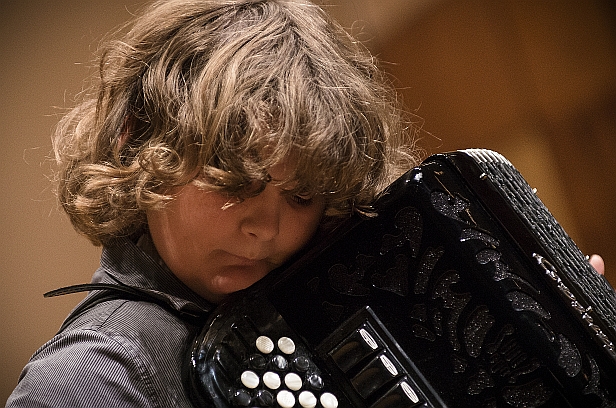The idea of organising the World New Music Days festival in Slovakia was as old as the Slovak section of the ISCM itself. Since the foundation of the ISCM, Czechoslovakia was a festival organiser on four occasions (1924 in Prague, jointly with Salzburg, 1925 in Prague, jointly with Vienna, in Prague in 1935 and 1967), and the desire to host this large international meeting naturally surfaced again following the change of regime in 1989, resulting in the idea of applying for the position of organiser in 1996; an idea which not come to fruition due to the break-up of Czechoslovakia. After the creation of the independent Slovak section, the idea of organising the festival was dusted off at meetings of the membership board.
As was mentioned earlier, since its inception the World New Music Days festival aimed to support the presentation of the latest in musical production, and to facilitate cooperation between composers, artists, publishers and organisers on an international scale. It is considered one of the first music festivals after the First World War.
Its international nature pitched it against the Donaueschingen Chamber Music Performances for the Support of Contemporary Music Production, which were established in Germany one year earlier (1921), but with the aim of presenting only German composers.
It may come as a surprise that the “zero”, first and second years of the festival took place in Salzburg rather than in Vienna; this was caused by Vienna’s too conservative environment, which refused new “eccentricities” in music, and where young composers had difficulty establishing themselves.
The first years brought the expected results: an enthusiastic acceptance of new music on the one hand, whistling and insults on the other. In modern society, however, this is predictable. The compositions in the festival programme were chosen by an international jury from among the works submitted, and such a jury can always make their choice only on the basis of artistic and quality criteria, or on the basis of the principle of representation. Although the festival prided itself on presenting music from all sorts of countries, the limitation of a few concert days caused difficulties in being able to give space to all countries. Those countries from which pieces were only rarely (if ever) played at the festival began to clamour more and more vehemently for a guarantee that their pieces would be chosen. The festival suffered from this problem for decades. The way in which the dramaturgy was decided remains unchanged many years later, but since 2011 each member section which meets the criteria for composition submission has the certainty that at least one of its nominated works will be performed at the festival.
For 20 years, the festival has also supported young musicians under the age of 35 by awarding the Young Composer Award. In addition to the financial side, this gives the award-winner the opportunity to write a new composition which is then presented at one of the subsequent festivals.
The idea of organising the World New Music Days festival in Slovakia was as old as the Slovak section of the ISCM itself. Since the foundation of the ISCM, Czechoslovakia was a festival organiser on four occasions (each time in Prague – 1924 jointly with Salzburg, 1925 jointly with Vienna, 1935, 1967), and the desire to host this large international meeting naturally surfaced again following the change of regime in 1989, resulting in the idea of applying for the position of organiser in 1996; an idea which could not be implemented due to the break-up of Czechoslovakia. After the creation of the independent Slovak section, the idea of organising the festival was dusted off at meetings of the membership board.
A new impulse came with the initiative of Oľga Smetanová (a delegate of the Slovak section) to submit a proposal at the general assembly of the ISCM in Vilnius, Lithuania (2008) to organise the festival in 2013, in conjunction with the festival Melos-Ethos. Shortly after the Slovak section joined forces with the Austrian section and the festival Wien modern, and the festival ISCM World New Music Days 2013 was produced in cooperation.
In Slovakia, we launched many activities and projects related to the planned festival which were intended both to peak at the festival in 2013 (mainly in Košice) and also to continue after it as platforms for systematic work in a particular area. This is how the New Music for Kids and Teens and the VENI ACADEMY came about, which we have written about above. The ISCM New Music Days in Košice was also established, taking place in cooperation with the Slovak State Philharmonic, Košice and the project Košice – European Capital of Culture 2013 from 2010 to 2014.
The “travelling” ISCM World New Music Days festival in 2013 was held in Košice, Bratislava and Vienna. Festivals in different towns were important partners: ARS NOVA Cassoviae (Košice), Melos-Ethos (Bratislava) and Wien Modern (Vienna).
As part of the festival, ten concerts were held in Košice (in locations such as the House of Arts, Kasárne/Kulturpark and Kunsthalle), six concerts in Bratislava (in the Slovak Philharmonic, Slovak Radio, Dvorana concert hall of the Academy of Performing Arts) and ten concerts in Vienna (in the halls of the Konzerthaus, Austrian Radio – ORF, Porgy & Bess and Palais Kabelwerk). Installations and musicology symposia accompanied the events in all three cities.
The importance of the festival in 2013 for Slovakia, however, does not only lie in the event itself, but in the subsequent opening up of new opportunities: a solo recital by Milan Paľa at the Music Biennale Zagreb (2015 and 2017) and the more extensive activities abroad of the VENI ACADEMY (lectures and workshops with Slovak artists and music in the Czech Republic and Croatia, and a residency at the Zagreb festival in 2015), to name a few.
~ Irena Lányiová



























